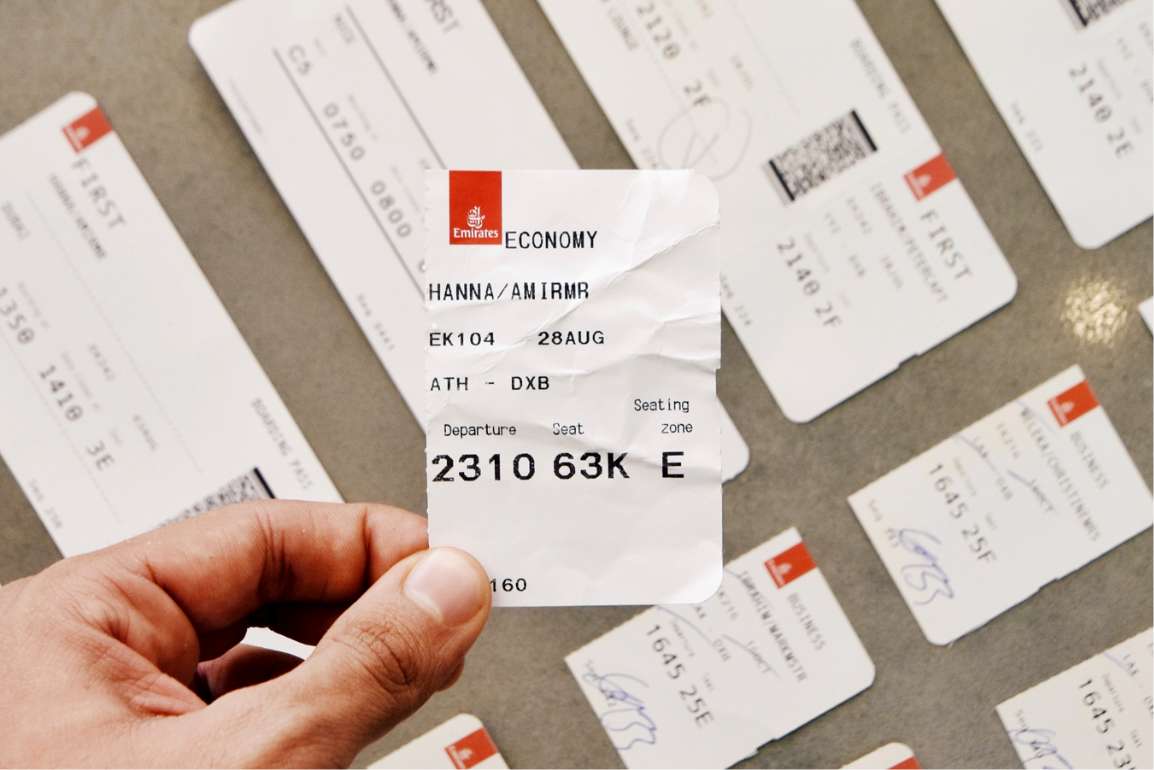Bringing forward the departure time as a cancellation? ECJ judgment of 21.12.2021 – C-263/20 (Airhelp)
Guiding principle
Article 2(l) and Article 5(1)(c) of Regulation (EC) No 261/2004 of the European Parliament and of the Council of 11 February 2004 establishing common rules on compensation and assistance to passengers in the event of denied boarding and of cancellation or long delay of flights, and repealing Regulation (EEC) No 295/91, must be interpreted as meaning that a flight is regarded as being ‘cancelled’ in the case where the operating air carrier brings that flight forward by more than one hour.
Circumstance
Two passengers booked a flight of the operating air carrier Laudamotion from Palma de Mallorca (Spain) to Vienna (Austria) via an electronic booking platform. […]
The departure of the booked flight, originally scheduled for 14 June 2018 at 2.40 p.m., has been brought forward by the operating air carrier by more than six hours to 8.25 a.m.
Airhelp, to which the two passengers waived their possible claims for compensation under Regulation No 261/2004, brought an action before the Bezirksgericht Schwechat (District Court, Schwechat, Austria). It claimed that under Article 7(1)(a) of the Regulation, the operating air carrier owed a total of EUR 500 to the two passengers because the flight in question had been brought forward by more than six hours; Passengers were only informed of this via the booking platform on 10 June 2018, four days before the scheduled departure.
The Landesgericht Korneuburg (Regional Court, Korneuburg, Austria), as the court of appeal, wishes to know whether the bringing forward of a flight constitutes a ‘cancellation’ within the meaning of Regulation No 261/2004 and the extent to which the operating air carrier is obliged to provide information.
Decision
The ECJ states that the term ‘cancellation’ is defined in Article 2(l) of that regulation as ‘the non-performance of a scheduled flight for which at least one seat was reserved’. The term ‘flight’ is not defined in the regulation. However, according to settled case-law, a flight consists of an ‘air carriage operation which thus constitutes, in a certain way, a ‘unit’ of that transport carried out by an air carrier which determines the corresponding route’ (judgment of 4 July 2018, Wirth and Others, C-532/17, EU:C:2018:527, paragraph 19).
Furthermore, the Court has held that the route is an essential element of the flight operated according to a timetable drawn up in advance by the air carrier (judgment of 19 November 2009, Sturgeon and Others, C-402/07 and C-432/07, EU:C:2009:716, paragraph 30).
Moreover, it does not follow from the definition in Article 2(l) of Regulation No 261/2004 that the ‘cancellation’ of a flight within the meaning of that provision requires, in addition to the fact that the flight originally envisaged was not operated, an express decision to cancel it (judgment of 13 October 2011, Sousa Rodríguez and Others, C-83/10, EU: C:2011:652, paragraph 29).
It is true that Article 2(l) and Article 5(1) of the regulation do not govern how the advance of a flight is to be treated. In that regard, the other carriage provided for in Article 5(1).c(1)(ii) and (iii ) refers to cases where a flight is brought forward. It follows that there is no obligation to pay compensation if the passenger departs with the replacement carriage no more than one or two hours before the scheduled departure time and reaches his final destination no more than four or two hours after the scheduled arrival time.
It must be inferred from this that the EU legislature has recognised that bringing forward a flight may also be fraught with considerable inconvenience, since it deprives them of the possibility of freely disposing of their time and organising their journey or stay in accordance with their expectations. The advance forces the passenger to make considerable efforts to reach his flight.
As regards the distinction between a significant and an insignificant advance of a flight, the provisions of Article 5(1)(a.c para. (ii) and (iii) of Regulation No 261/2004.
From Art. 5 para. 1 lit.c para. (iii) of the regulation shows that an advance of one hour or less is liable to exempt the operating air carrier from its obligation to pay compensation to the passenger under Article 7 of that regulation. It must therefore be held that, in order to determine whether the advance is significant or irrelevant for the purposes of applying Article 5 of that regulation, it is important whether it is more than one hour or less.
Note
The decision fits into the previous jurisprudence of the ECJ to ensure a high level of protection for passengers. The decision shows the incompleteness of the Air Passenger Rights Regulation. On the basis of the legal definition, the Air Passenger Rights Ordinance itself expressly regulates only the case in which a planned flight for which a seat was reserved is not carried out (cf. Art. 2 lit. i Regulation (EC) 261/2004). With an unbiased reading, any addressee of the norm should be able to interpret this provision in such a way that if a planned flight is brought forward, this flight is not to be regarded as cancelled, but is merely postponed. Nevertheless, the ECJ assumes a cancellation of the flight and justifies this with the “planning element” of the flight. In this respect, the ECJ seeks to draw a distinction between merely changing flight planning and abandoning flight planning. The assumption that the advance of a planned flight from one hour, regardless of the planned departure time, is always to be equated with a complete task of flight planning, seems strange – even if the reasons for this are understandable. Rightly, it should be the task of the European legislator to expressly regulate the advance of a flight and the resulting rights and obligations of passengers and airlines. With the mere reference to Art. 5 para. 1 lit.c para. ii, iii Regulation (EC) 261/2004 and the “legislative will” derived from it, the ECJ interprets its interpretative competence very broadly. The assumption that the advance of a flight by 1 hour is to be equated with a non-execution of the flight could even be assessed as an inadmissible interpretation contra legem according to the German understanding.
The decision not only has economic consequences for the airlines (obligation to pay compensation pursuant to Art. 7 Regulation (EC) 261/2004, right to ticket refund, Art. 8 para. 1 lit. a Regulation (EC) 261/2004), but also leads to the information obligations pursuant to Art. 14 Vo (EC) 261/2004.
A violation of those information obligations under Art. 14 VO (EC) 261/2004 is proven in Germany. Advance transfers of a flight of more than one hour, of which the passenger has not been informed at least 14 days before departure, and if the passenger has not been informed of his or her rights, thus constitute an administrative offence without this being apparent from the underlying legal basis. Unfortunately, the ECJ does not take these consequences into account in its decision.



